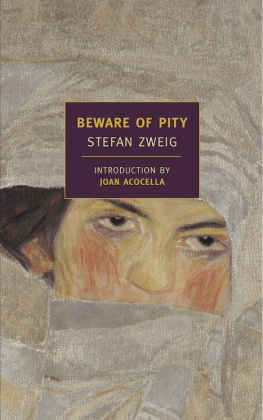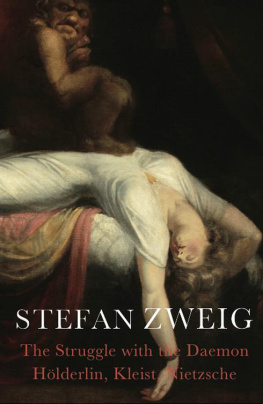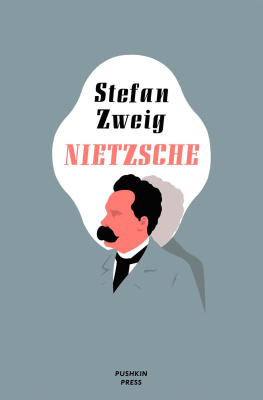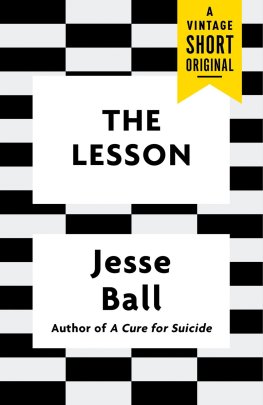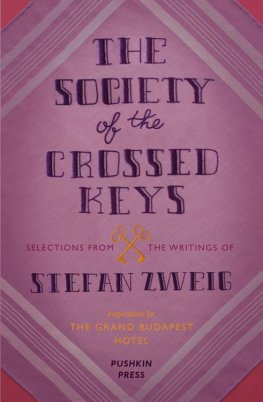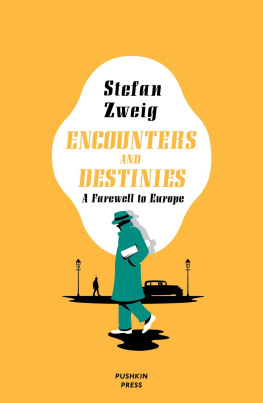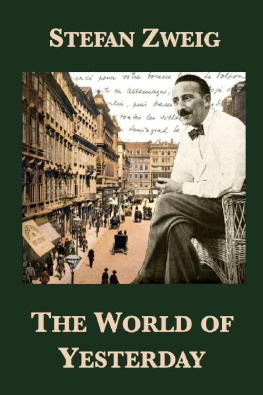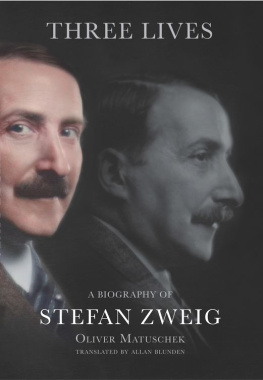Stefan Zweig - Chess
Here you can read online Stefan Zweig - Chess full text of the book (entire story) in english for free. Download pdf and epub, get meaning, cover and reviews about this ebook. year: 2006, publisher: Penguin Books, genre: Detective and thriller. Description of the work, (preface) as well as reviews are available. Best literature library LitArk.com created for fans of good reading and offers a wide selection of genres:
Romance novel
Science fiction
Adventure
Detective
Science
History
Home and family
Prose
Art
Politics
Computer
Non-fiction
Religion
Business
Children
Humor
Choose a favorite category and find really read worthwhile books. Enjoy immersion in the world of imagination, feel the emotions of the characters or learn something new for yourself, make an fascinating discovery.
- Book:Chess
- Author:
- Publisher:Penguin Books
- Genre:
- Year:2006
- Rating:4 / 5
- Favourites:Add to favourites
- Your mark:
- 80
- 1
- 2
- 3
- 4
- 5
Chess: summary, description and annotation
We offer to read an annotation, description, summary or preface (depends on what the author of the book "Chess" wrote himself). If you haven't found the necessary information about the book — write in the comments, we will try to find it.
Chess — read online for free the complete book (whole text) full work
Below is the text of the book, divided by pages. System saving the place of the last page read, allows you to conveniently read the book "Chess" online for free, without having to search again every time where you left off. Put a bookmark, and you can go to the page where you finished reading at any time.
Font size:
Interval:
Bookmark:
PENGUIN BOOKS
Chess
Stefan Zweig was born in Vienna in 1881, and gained fame first as a poet and translator, and then as a biographer, short-story writer and novelist. Zweigs first works were poetry and a poetic drama, Jeremia (1917), which expressed his passionate antiwar feelings. With the rise of Nazism, he moved from Salzburg to London to research a book on Mary, Queen of Scots. He also visited Sigmund Freud, whom he had met already in the 1920s. In 1938 he became a British citizen, and in 1940, after a successful lecture tour in South America, he and his second wife Charlotte E. Altmann settled in Brazil. Disillusioned and isolated, Zweig committed suicide with his wife, in Petrpolis, near Rio de Janeiro on 23 February 1942.
Zweigs best-known works of fiction include Beware of Pity (1938) and Chess: A Novella (1944), as well as many historical biographies of subjects as diverse as Marie Antoinette, Erasmus, Mary Queen of Scots, Magellan and Balzac.
STEFAN ZWEIG
a novella
Translated by Anthea Bell

PENGUIN BOOKS
PENGUIN BOOKS
Published by the Penguin Group
Penguin Books Ltd, 80 Strand, London WC2R 0RL , England
Penguin Group (USA) Inc., 375 Hudson Street, New York, New York 10014, USA
Penguin Group (Canada), 90 Eglinton Avenue East, Suite 700, Toronto, Ontario, Canada M4P 2Y3 (a division of Pearson Penguin Canada Inc.)
Penguin Ireland, 25 St Stephens Green, Dublin 2, Ireland (a division of Penguin Books Ltd)
Penguin Group (Australia), 250 Camberwell Road, Camberwell, Victoria 3124, Australia (a division of Pearson Australia Group Pty Ltd)
Penguin Books India Pvt Ltd, 11 Community Centre, Panchsheel Park, New Delhi 110 017, India
Penguin Group (NZ), cnr Airborne and Rosedale Roads, Albany, Auckland 1310, New Zealand (a division of Pearson New Zealand Ltd)
Penguin Books (South Africa) (Pty) Ltd, 24 Sturdee Avenue, Rosebank, Johannesburg 2196, South Africa
Penguin Books Ltd, Registered Offices: 80 Strand, London, WC2R 0RL , England
www.penguin.com
First published as Schachnovelle in 1943
Published as a Penguin Red Classic 2006
Copyright Stefan Zweig, 1943
Translation copyright Anthea Bell, 2006
The moral right of the author and translator has been asserted
Except in the United States of America, this book is sold subject to the condition that it shall not, by way of trade or otherwise, be lent, re-sold, hired out, or otherwise circulated without the publishers prior consent in any form of binding or cover other than that in which it is published and without a similar condition including this condition being imposed on the subsequent purchaser
ISBN: 978-0-14-196506-2
The usual last-minute bustle of activity reigned on board the large passenger steamer that was to leave New York for Buenos Aires at midnight. Visitors who had come up from the country to see their friends off were pushing and shoving, telegraph boys with caps tilted sideways on their heads ran through the saloons calling out names, luggage and flowers were being brought aboard, inquisitive children ran up and down the steps, while the band for the deck show played imperturbably on. I was standing on the promenade deck a little way from all this turmoil, talking to an acquaintance, when two or three bright flashlights went off close to us. It seemed that some prominent person was being quickly interviewed by reporters and photographed just before the ship left. My friend glanced that way and smiled. Ah, you have a rare bird on board there. Thats Czentovic. And as this information obviously left me looking rather blank, he explained further. Mirko Czentovic, the world chess champion. Hes been doing the rounds of America from the east coast to the west, playing in tournaments, and now hes off to fresh triumphs in Argentina.
I did in fact remember the name of the young world champion, and even some of the details of his meteoric career. My friend, a more attentive reader of the newspapers than I am, was able to add a whole series of anecdotes. About a year ago, Czentovic had suddenly risen to be ranked with the most experienced masters of the art of chess, men like Alekhine, Capablanca, Tartakower, Lasker and Bogolyubov. Not since the appearance of the seven-year-old infant prodigy Rzeschewski at the New York chess tournament of 1922 had the incursion into that famous guild of a complete unknown aroused such general notice. For Czentovics intellectual qualities by no means seemed to have marked him out for such a dazzling career. Soon the secret was leaking out that, in private life, this grandmaster of chess couldnt write a sentence in any language without making spelling mistakes, and as one of his piqued colleagues remarked with irate derision, his ignorance was universal in all fields. The son of a poor South Slavonian boatman, whose tiny craft had been run down one night by a freight steamer carrying grain, the boy, then twelve, had been taken in after his fathers death by the priest of his remote village out of charity, and by providing extra tuition at home the good Father did his very best to compensate for what the taciturn, stolid, broad-browed child had failed to learn at the village school.
But his efforts were in vain. Even after the written characters had been explained to him a hundred times, Mirko kept staring at them as if they were unfamiliar, and his ponderously operating brain could not grasp the simplest educational subjects. Even at the age of fourteen he still had to use his fingers to do sums, and it was an enormous effort for the adolescent boy to read a book or a newspaper. Yet Mirko could not be called reluctant or recalcitrant. He obediently did as he was told, fetched water, split firewood, worked in the fields, cleared out the kitchen, and dependably, if at an irritatingly slow pace, performed any service asked of him. But what particularly upset the good priest about the awkward boy was his total apathy. He did nothing unless he was especially requested to do it, he never asked a question, didnt play with other lads, and didnt seek occupation of his own accord without being expressly told to. As soon as Mirko had done his chores around the house, he sat stolidly in the living-room with that vacant gaze seen in sheep out at pasture, paying not the least attention to what was going on around him. While the priest, smoking his long country pipe, played his usual three games of chess in the evening with the local policeman, the fair-haired boy would sit beside them in silence, staring from under his heavy eyelids at the chequered board with apparently sleepy indifference.
One winter evening, while the two players were absorbed in their daily game, the sound of little sleigh bells approaching fast and then even faster was heard out in the village street. A farmer, his cap dusted with snow, tramped hastily in: his old mother was on her deathbed, could the priest come quickly to give her Extreme Unction before she died? Without a moments hesitation the priest followed him out. The policeman, who hadnt yet finished his glass of beer, lit another pipe to round off the evening, and was just about to pull his heavy boots on when he noticed Mirkos eyes fixed unwaveringly on the chessboard and the game they had begun.
Well, would you like to finish it? he joked, sure that the sleepy boy had no idea how to move a single chessman on the board correctly. The lad looked up timidly, then nodded and sat down in the priests chair. After fourteen moves the policeman was beaten, and what was more, he had to admit that his defeat couldnt be blamed on any inadvertently careless move of his own. The second game produced the same result.
Next pageFont size:
Interval:
Bookmark:
Similar books «Chess»
Look at similar books to Chess. We have selected literature similar in name and meaning in the hope of providing readers with more options to find new, interesting, not yet read works.
Discussion, reviews of the book Chess and just readers' own opinions. Leave your comments, write what you think about the work, its meaning or the main characters. Specify what exactly you liked and what you didn't like, and why you think so.


